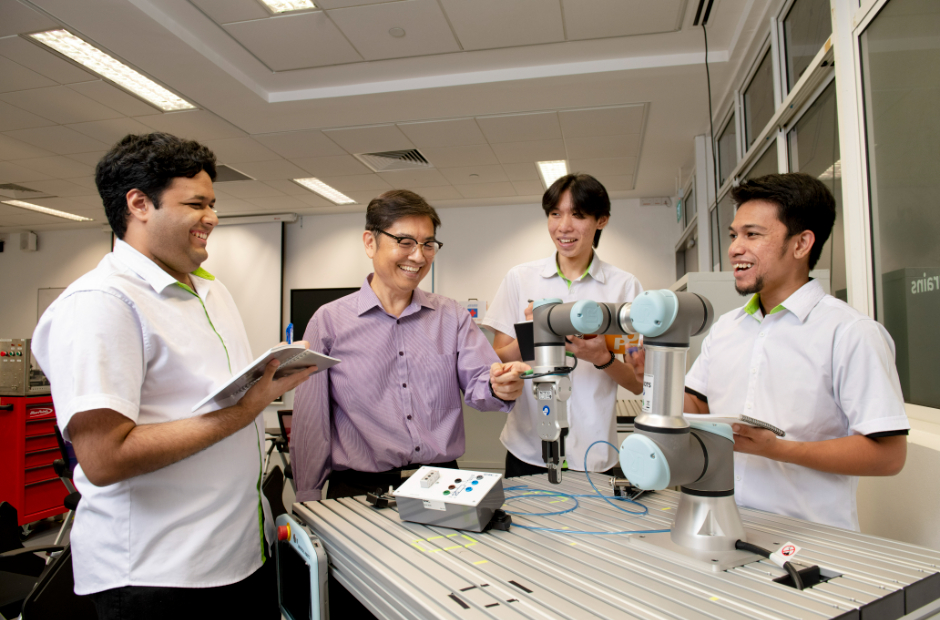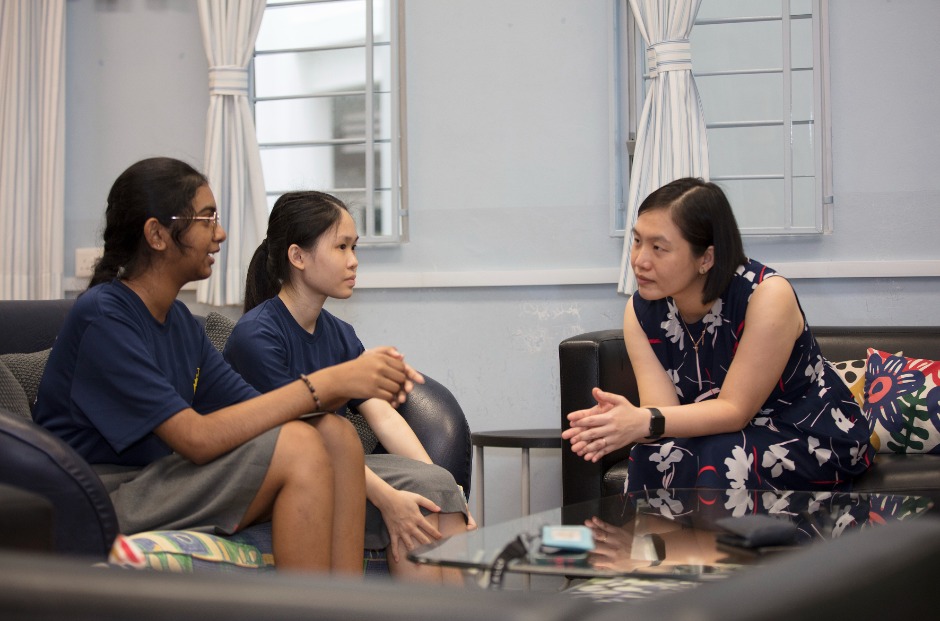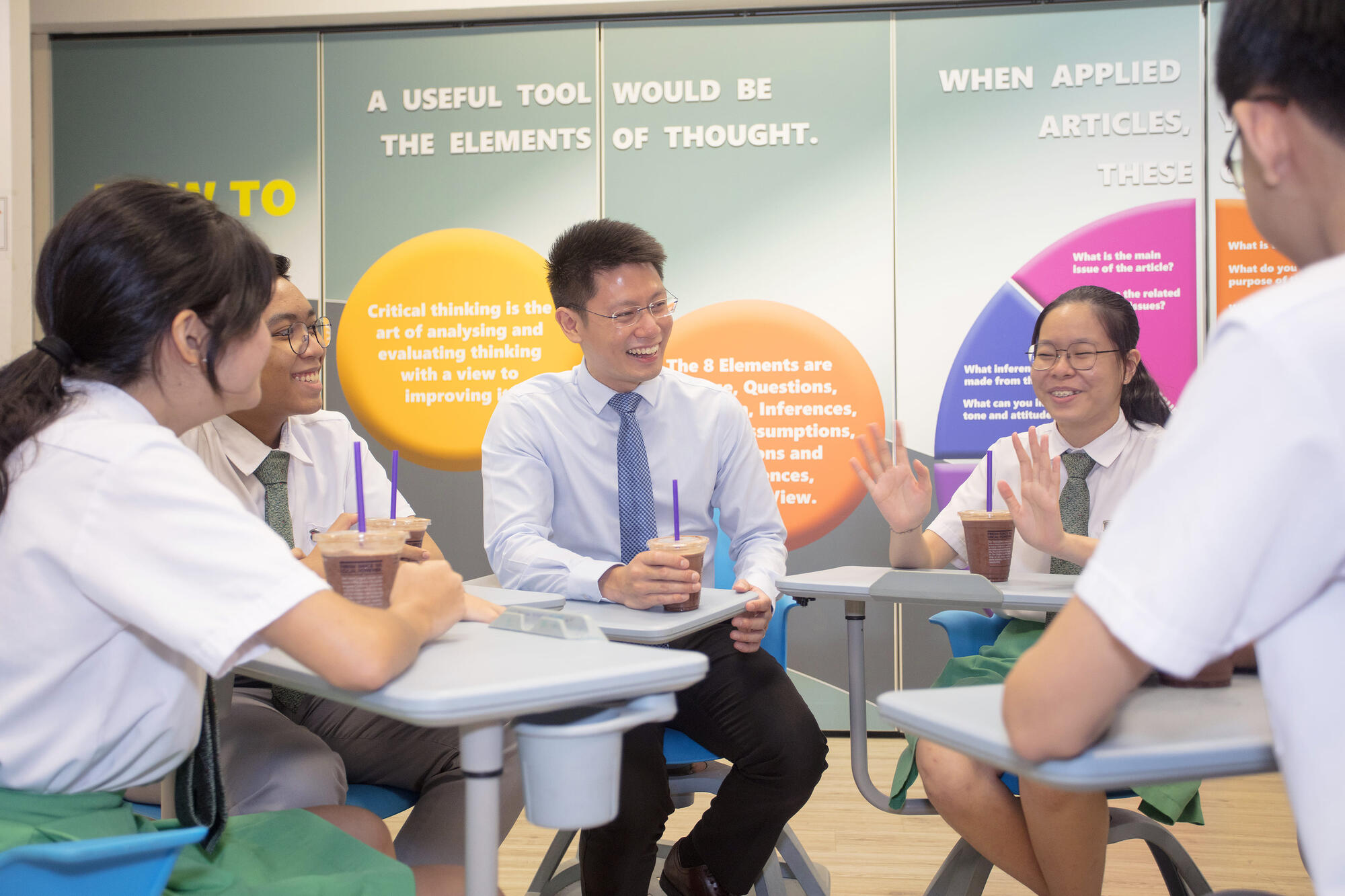‘Friendly’ and ‘approachable’ are two of the most common words used by Mr Choo Meng Cher’s students to describe him. Their memories of him are peppered with anecdotes about the lunches they shared, how he reminds them repeatedly to pursue their dreams, and how he called them up one by one during the COVID-19 circuit breaker to check on their well-being.
To them, the ITE Senior Lecturer in the School of Electronics and Info-comm Technology is more than just someone who teaches them about electronics, the Internet of Things (IOT) and Python programming. Instead, he is someone known to have his students’ backs.
Mr Choo is quick to point out that he was not always like this. When he joined ITE some 40 years ago, he was extremely task-oriented and had a “very army style”. It was not until he started a family that he began to change his mindset and approach towards his students.
“In the army, being strong and assertive gets things done. But in my family, it was chaotic, and I had to try different approaches to get through to my children,” he says candidly of his lessons in parenting, which have since benefitted him as an educator.
The importance of ‘a bag of hope’
Today, Mr Choo focuses less on “getting things done” and more on being there for his students. Some of them join his course without confidence in their abilities, so he makes it his priority for them to graduate from ITE with not just a qualification, but a healthy self-esteem and what he calls “a bag of hope”.
“What I mean by hope is that they see value in coming to ITE and learning a skill, that they gain confidence and look forward to joining the workforce,” he continues. “When they have hope, they don’t behave selfishly. They are not easily intimidated.”
Mr Choo’s words carry weight because he had struggled with the same challenges before. He joined the equivalent of an ITE programme back in his day, suffered from self-esteem issues and was only able to look beyond his academic achievements with the encouragement of his friends.
Eager to pay it forward, he joined ITE as a teaching assistant in 1984. He applied for a scholarship to pursue a diploma in 1999. The qualification allowed him to become a lecturer, which he prefers because it allows him to work closely with a single class and build more meaningful relationships with students.
“They see value in coming to ITE and learning a skill…When they have hope, they don’t behave selfishly. They are not easily intimidated.”
Mr Choo Meng Cher
He trains himself to train others
Mr Choo has a wealth of experience in the Technical and Professional Education and Training domain in ITE. He was one of the pioneer trainers selected to conduct a certifiable “Train the Trainer” programme, which equips industry partners with skillsets to coach their peers at work.
He has certainly earned the stripes to do so: He has surfed every wave of change in the electronics industry over the past four decades. During the micro:bit wave, he picked up the programming language and taught it to his colleagues, who then trained their students.
Currently, he is tapping on data analytics and Python in an initiative that he leads, called “Predictive Analytics for Early Intervention”. The initiative aims to help faculty better identify at-risk students and intervene as quickly as possible.
He brings the same energy and curiosity to his lessons, getting students excited about theories like Ohm’s Law, voltage and waveforms.
He might first demonstrate how electronic circuits are designed, before letting students explore the fun of applying electronics in daily life, like constructing a circuit board to water their grandparents’ plants at timed intervals, or building a motion-triggered LED-lit canvas to decorate their rooms. Students better grasp the theories through these hands-on sessions, with many regaining confidence in their academic abilities along the way.
To raise students’ confidence for assessments, he developed an online bank of 900 questions across three modules to facilitate independent practice. This helped cohorts of students prepare for assessments and was especially valuable during extended periods of home-based learning. Even now, students and staff use the bank extensively.

‘Students can tell from your tone’
Mr Choo extends his passion for solutioning to impacting and improving his students’ lives.
He devised a peer support system by appointing some students as “class monitors” – he goes over the class material with them in advance so they can help their classmates during lessons. The advantage is two-fold: It boosts self-confidence and teaches students the value of helping others.
In 2021, two of his students with autism were unable to secure Industry Attachments (IA). Mr Choo swooped in to customise a 10-week programme for them and doubled as their IA supervisor, so that they were able to learn from the IA experience.
His sense of care and patience also comes through when managing challenging students, taking the time to engage them in one-on-one conversations.
“I remind myself that during the conversation, I want to encourage and help the student, not that I want them to listen to me. If I do that right, the conversation usually goes well,” he explains.
“When they know that you care about them, that you are firm when needed and can joke with them at the appropriate juncture, when they see that you are holistic and consistent in your approach, they will begin to trust you.”
He must be doing something right. Mr Choo regularly receives exceedingly high scores in student feedback surveys.
“Students know your heart and how you feel about them from your tone and the way you speak. They appreciate that there is genuine concern.”






.jpg)